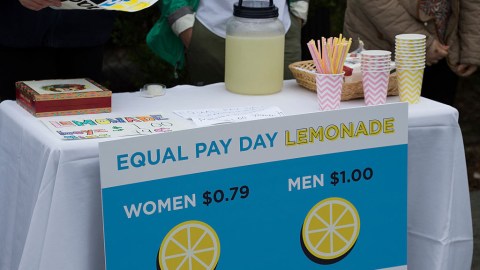Gender Pay Gap Not Solved by Education Alone

Women’s well-being and equality in the work world are hot topics. Sheryl Sandberg’s Lean In is still sparking conversations about gender equality in the workplace even though it came out three years ago. And Equal Pay Day draws attention to the gender pay gap every year in early April.
There’s a lot of hypotheses out there about what can help women even the playing field with men, and one of the most commonly cited ideas used to be that women needed to catch up with men educationally before they could catch up in the workplace.
However, new research from the University of Vermont, shows that women are almost caught up to men education wise — at least when you look at the numbers from a holistic perspective. Women now have 91 percent of the number of years of education that men do. Yet, at the same time they still lag behind in pay by a gap of 77 cents on the dollar.
So, something else must be going on to explain the gap. One possibility is that the problem does still rest partially about education, but only when you break down the numbers. Historically, there have been few women in so-called STEM (science, technology, engineering, and math) majors within colleges and universities, though the numbers are growing with the help of retention methods.
One of the biggest challenges within STEM fields is representation of women within leadership positions. It’s hard not to wonder whether perceptions of female competency have something to do with that, since studies show that men still often see women as incompatible with leadership in STEM fields.
The original University of Vermont study also suggests that political representation is key, as is figuring out how to allay fears that helping women succeed means letting men fail. Progress is important, but there is still a ways to go.
—
Image: MOLLY RILEY / Stringer (Getty Images)





